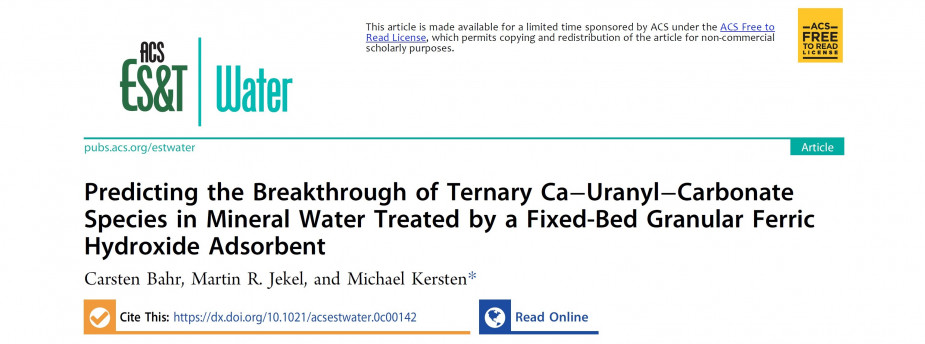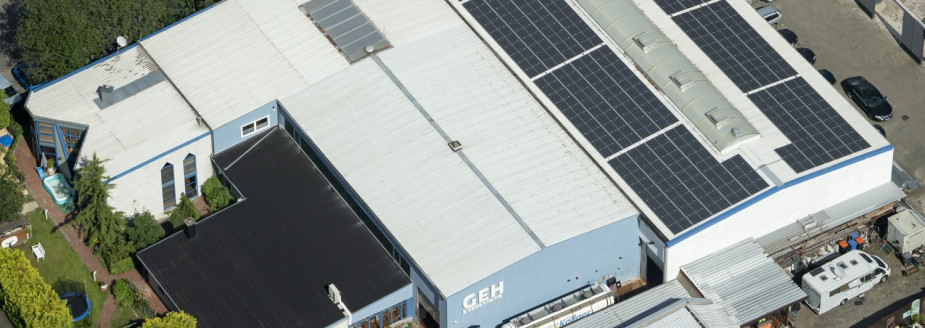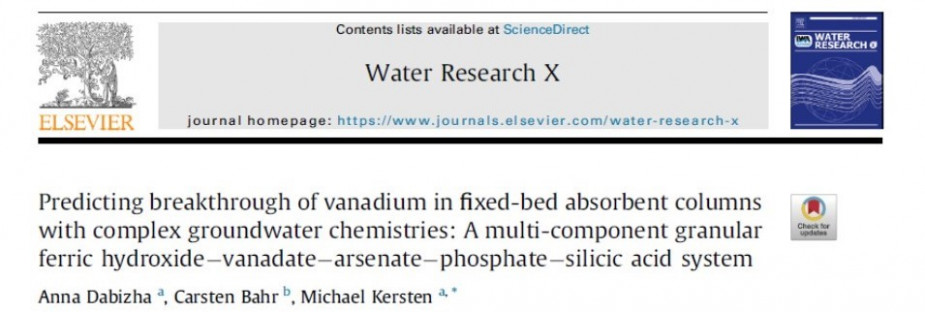
A new concept: Arsenic removal in private households in Argentina - A view from the online marketing perspective of an Osnabrück student
A student from the University of Applied Sciences in Osnabrück developed an online-marketing-concept in cooperation with GEH Wasserchemie and ProH2O as his bachelor thesis. The goal is the targeted marketing of GEH® for private households in arsenic-polluted areas of Argentina.
read more

Droughts can increase the amount of naturally occurring arsenic in private domestic wells
Both public and private wells can be affected by natural occurring arsenic. In the case of private wells in particular, there is a risk that higher arsenic levels will go undetected during periods of drought.
read more

Current publication on predicting the service life of granular ferric hydroxide (GEH) adsorption filters for removing uranium from drinking water and mineral water
In the course of a scientific cooperation project with the Hydrogeochemistry Work Group at the University of Mainz and the
Institute of Environmental Technology at Technische Universität Berlin, a model was refined for predicting the service life of
granular ferric hydroxide (GEH) filters in the uranium removal process for water. This was then laboratory and pilot tested
using the available data.
read more

GEH Wasserchemie goes treasure hunting
The inauguration of our very own photovoltaic system is just the latest in a long line of energy management system activities: through this development, we have shown that SMEs also have the potential to make significant energy savings and, in doing so, to reap the economic benefits.
read more

Removing vanadium using GEH: scientific model published for predicting filter breakthroughs
When planning adsorption filters, the level of achievable adsorption capacity plays a significant role, as this determines the residence time (i.e. the replacement interval) and thus also the cost effectiveness. In conjunction with the Hydrogeochemistry Work Group at the University of Mainz, a model for the multi-component granular ferric oxide - vanadate - arsenate - phosphate - silicic acid system has now been successfully created and tested on the basis of laboratory tests and practical data.
read more

Collaboration with Hamburg University of Technology
Even established products, like our GEH granular adsorpent, find new fields of application and process options. With this in mind, we have formed a research project with the Institute of Water Resources and Water Supply at the Technical University Hamburg-Harburg (TUHH) to develop an innovative process for removing arsenic from drinking water that can be applied in addition to the tried-and-tested GEH fixed-bed adsorber technology currently in use.
read more

Audit under difficult circumstances: our coronavirus update
The world remains gripped by the coronavirus pandemic. With this update, we want to inform you of the current state of affairs at our company, an audit carried out at distance, and who is currently keeping the company operable.
read more

Update on the situation at GEH Wasserchemie during the coronavirus pandemic
The effects of the coronavirus pandemic are impacting all of us in most areas of our lives, and also presenting GEH Wasserchemie with major challenges. For our part, we have already taken a wide range of measures in order to maintain production of GEH® at our facility and thus ensure that our customers continue to be supplied. At present, there are no indications that the production or availability of our products will be restricted.
read more

Visit from Brussels: EU delegate Wölken visits GEH Wasserchemie
On 25 February 2020, Tiemo Wölken, Member of the European Parliament, was a guest at GEH Wasserchemie. Mr. Wölken, himself from Osnabrück, is a member of the European Parliament's Environment Committee and is therefore intensively involved in topics related to water treatment and water resources.
read more

GEH attends Aachen Water Conference
The 13th Aachen Conference on Water Technology took place at the Eurogress Aachen towards the end of October 2019. Organised every two years by RWTH Aachen University (ISA and ATV), the event is the largest German-speaking, process-related symposium in the water industry and attracts over 400 participants from ten nations.
read more








